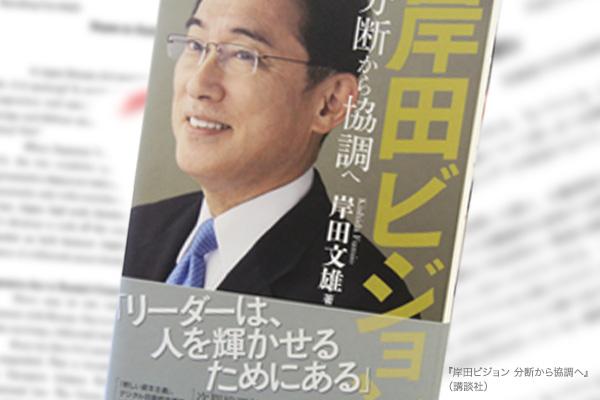“At least within the term (for the president of the ruling Liberal Democratic Party), I would promote constitutional amendments meeting the changes of the times,” Fumio Kishida told a press conference on September 17 before he was elected prime minister on October 4. The remark by Kishida who had been thought as a dove within the LDP indicates his zeal to realize four constitutional amendments drafted under then Prime Minister Shinzo Abe to (1) clearly endorse the Self-Defense Forces in Article 9, (2) create a national emergency clause, (3) eliminate the integration of prefectural constituencies for the House of Councilors and (4) enrich education. This might have been encouraging for people supporting constitutional amendments.
Postwar regime failing to protect national land and people
But I cannot but to raise a question if the Kishida-led Kochikai faction within the LDP has been eager to amend the Constitution. Japan’s postwar policy of seeking to become a lightly armed economic power has been named “Yoshida Doctrine” by late Tokyo Institute of Technology Professor Yonosuke Nagai after Shigeru Yoshida who served as prime minister in years shortly after World War II. Nagai’s description might have correctly indicated the common characteristics of Japan’s postwar political, business and bureaucratic circles even though Yoshida actually did not have such doctrine.
In the political circle, it was the Kochikai faction that has promoted the Yoshida Doctrine and has been described as mainstream. Representative politicians from the faction include former Prime Minister Kiichi Miyazawa. Kishida has described Miyazawa as a senior from the same home province (Hiroshima Prefecture) of whom he is very proud. Furthermore, Kishida vowed to keep the so-called three non-nuclear principles, noting that Hiroshima and Nagasaki came under atomic bomb attacks during the war. This indicates his way of thinking might meet the spirit of the Constitution of Japan.
Japan’s postwar regime has been symbolized by the Constitution. But has the Constitution protected Japan’s national sovereignty? What has happened to the Northern Territories and the Takeshima Islands? Into what situation are the Senkaku Islands put now? Is there any bright prospect for resolving North Korea’s abduction of Japanese citizens? Countries around Japan may be laughing at its current miserable situation in which there exists no improvement while the government simply repeats oral protests.
Russia has unilaterally notified Japan that it would conduct missile firing drills near the Yamato Bank known as a good fishing spot within Japan’s exclusive economic zone in the Sea of Japan. Ishigaki City of Okinawa Prefecture has asked the central government to allow city officials to land on the Senkaku Islands to replace station poles as the poles have deteriorated, with the islands’ address changed from “Tonoshiro, Ishigaki City” to “Tonoshiro Senkaku, Ishigaki City.” But the central government rejected the request, explaining that in order to stably maintain and manage the islands, the central government in principle would not allow anyone other than central government officials to land on the islands. This means that the government is reluctant to anger China that has made territorial claims to the Senkaku Islands. The postwar Japanese regime has made it impossible for Japan to protect its territorial land, waters and airspace as well as its people.
Prime minister’s promise carrying a lot of weight
There is no time to lose to rescue Japan that has become dysfunctional while facing Chinese or North Korean military operations. I would like Prime Minister Kishida as a dovish LDP politician to achieve the historic task of amending the Constitution. The prime minister’s promise regarding constitutional amendments carries a lot of weight commensurate with his post.
Tadae Takubo is Vice President of the Japan Institute for National Fundamentals and a professor emeritus at Kyorin University.


